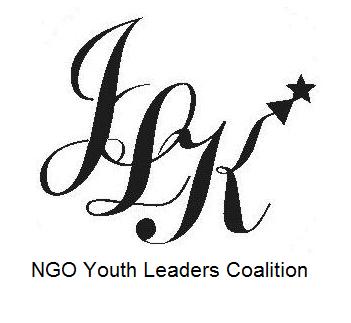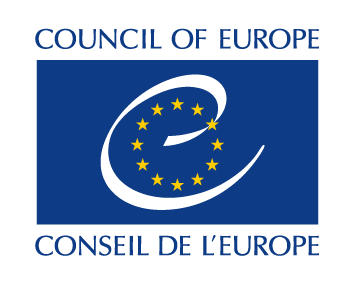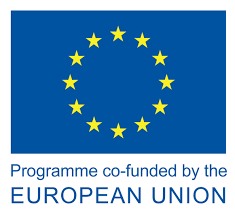YLC is working in the field of Youth at local, national and international level.
YLC has years of excellent experience in the field.
***
PARTNERSHIP IN SHORT
YLC has been active since 1999, officially registered in 2001.
Over many years YLC has accumulated great experience in working with youth and youth policy-making at local, regional, national and international levels.
YLC works with various governmental and local government institutions in Latvia and outside Latvia, non-governmental organisations in Latvia and outside Latvia and European level institutions and organisations, and has established a wide network of experts in the youth field, involving them in the implementation of various initiatives.
YLC acts as a resource centre for anyone interested in the development of youth and youth policy.
YLC works in the field of partnership and cooperation building leads to a variety of training and provides advice.
***
SOME PROJECTS EXAMPLES
"Social inclusion in Youth centres"
Summary of the project idea
Social exclusion and inclusiveness are especially important nowadays for modern society. Factors that make young people more difficult for integration and active involvement in society are: social barriers, economic barriers, disability, learning difficulties, cultural differences, health problems, geographical barriers. The consequence of social exclusion in the individual is prevented from fully participating in the economic, social and political life of the society in which the person lives. Social exclusion of young people can therefore cause unemployment, disability, negative attitude of the environment and the individual to migration, discrimination, physical and / or mental problems, addiction, abuse, domestic violence and anticipation. The EU Youth Strategy 2010-2018 highlights, in its objectives, the role and potential of youth work and youth centres as an integration area. Youth centres respond quickly to these challenges through various activities, projects. Some are successful in project activities (and follow the Integration Strategy and Diversity); others are still looking for suitable mechanisms, which, in terms of the environment and its specifics, and depending on the type of social exclusion or the potential for its emergence can respond successfully to the challenge. Nevertheless, we often speak only of project activities of youth centres, but not of program activities. It is essential that social inclusion becomes part of the program (implementation of a program with and for young people who are socially excluded or threatened by social exclusion) and which is included in the content of the centres strategically. In the framework of the Social Inclusion and Youth Centres project, we will conduct a study visit with the purpose of viewing good practices, international training for youth workers who are responsible for the development of programs in youth centres, where they will develop programs, national trainings where trained youth workers will receive knowledge transfer to other youth workers. The set of ideas, activities, methods and insight into concrete content and successful program content of youth centres will enable us to prepare a long-term plan in the form of strategic program orientations of youth centres in the field of social inclusion to train youth centres and their programmers youth workers and youth centres leaders, how to deal with the challenges of social exclusion in the local community and how to effectively respond to them. To this end, we will develop strategic guidelines that will enabled youth centres to gain insight into program development in the field of social inclusion, more precisely how to develop the program content from the project content, which relate both to the regular contents of the program and to the management of the centres. Strategic guidelines will enable the development of youth centres and more effective work in addressing contemporary challenges. Consequently, the role of youth centres in the field of social inclusion will be strengthened and, as such, will establish youth centres as a competent interlocutor in this field, other stakeholders (various organizations working in the field of young people with fewer opportunities, decision-makers, etc.) and encourage local communities and also broader to a more proactive approach to the development of social inclusion policies and programs, which would lead to a more inclusive society. Through the project and project activities, we will co-shape part of the European dimension of social inclusion, since we will develop concrete programs based on the analysis carried out, analysing all the key documents in the field of social inclusion at the national and European level (EU Youth Strategy 2010-2018, Erasmus + Strategy: Youth in Action in the field of Integration and Diversity, SALTO Inclusion Center Publications, Analysis of European Union Data Files on Employment, Social Affairs and Inclusion Policy, etc.), which will be especially evident during the development of strategic orientations and in carrying out international mobility and national training), with the involvement of experts. We will develop guidelines that will be used wider in addition to the participating partner countries and guide the development of social inclusion in the youth sector.
Social exclusion is a modern challenge by which youth centres meet on a daily basis, but there are no concrete policies and strategies to deal with social inclusion in practice and in the field. It is a fact that there is no concrete strategies or guidelines that would provide support or help the youth centres in effective dealing with social inclusion in the long term. To this end, within the framework of the project Social Inclusion in Youth Centres, we will analyse the situation on the ground of all partner countries in local environments. In doing so, we will define the criteria for the effective program functioning of youth centres in the field of social inclusion and develop concrete and innovative solutions at the level of the program action to integrate social inclusion activities into the strategic program activities of youth centres, since youth work offers one of the basic spaces for social inclusion and youth participation. In doing so, the creation of project products will lead to the strengthening and empowerment of the youth sector in working with young people with fewer opportunities. We will provide for the quality preparation of programs and projects, as well as informing and raising public awareness on the importance of social inclusion of young people in organizational and program documents of organizations, in our case, youth centres operating in local environments.
The project will involve all relevant stakeholders and actors on the topic of social inclusion at the national levels of partner countries, which will also be reflected in the analysis of the situation, followed by an action plan for cooperation and involvement of national and local stakeholders in the process of preparing the program in youth centres. In this context, we will connect all relevant stakeholders that are important in the social inclusion of young people at the horizontal level, both at national and local level.
Project is financed by EU program Erasmus+: Youth
PROJECT „Baltic youth research(ers) up-graded: long term impact on youth field“
SUMMARY
Problematic. There could be many examples when proper attention and reacting to certain problem is given upon urgent and unpleasant situations (such as alcoholism problematic when a father is killing two small children). It so-called “firefighting” - the practice of dealing with problems as they arise rather than planning strategically to avoid them. It‘s so obvious that such practice is undesired, but still, it is existing.
Why? There are many reasons. But we would like to highlight such as: to pure cooperation between politicians – practitioners and researchers; capability to analyze data - wrong data interpretations can lead to bad decisions; different data is in different hands (economical – Ministry of Finance; social – Ministry of Social Security and Labour; educational – Ministry of Education and science etc.) – national measures are planned only having part of important information, but not having a full view of the situation, etc.
Such firefighting is existing in many areas which affect youth. In this the project we will tackle problematic of youth emigration: external and internal. This topic is an issue for many areas of national policy: economic, labour affairs, education, social, geographical balance, foreign affairs and others. Dealing with emigration there are existing strategies, inter-institutional programs, many national and local working groups, activities etc. Plenty of actions are taken, but the expected impact is not reached. Why it is so? Project team will search for those answers.
Project activities:
Using youth researchers as a measure to reach cross-sectoral cooperation and openness of all areas in thematic of youth emigration:
Preparing common methodology to evaluate the efficiency of implemented measures/ taken actions and analyzing certain measures (correspondence to the needs, the satisfaction of target group; impact);
Involvement in planning new measures by participating in working groups;
Preparing or reviewing situation analyzes (clarification of existing data) of legal documents and giving feedback to politicians and practitioners (strategies, programs, etc.);
Preparing an external annual report of implemented national measures (focus – not blaming, but bringing up findings what is missing in order to meet the “burning” data)
Project outcomes:
Methodology to evaluate the efficiency of implemented measures/ taken actions (correspondence to the needs, the satisfaction of target group; impact);
Analysis of partner practice: what kind of youth researchers actions were accepted by politicians and practitioners; what kind of proposals of youth researchers were accepted; possible involvement of youth researchers in planning, implementing and evaluating processes: it’s continuity, duration, periodicity etc.
Action description and recommendations for other EU youth researchers in creating not magical but real tringle of politicians, practitioners and researchers.
3 years lasting agreement on cooperation in all partner countries between politicians, practitioners and researchers.
Project duration: 24 months.
Financed by Erasmus+: Youth
Baltic Partnerships for Human Rights Education (HRE) and Education for Democratic Citizenship (EDC)
This project aims at contributing to the implementation of the Council of Europe’s Charter on Education for Democratic Citizenship and Human Rights Education, the priorities of the Strategic framework for European cooperation in education and training (ET2020) and of the provisions of the Paris Declaration by:
- reinforcing the cooperation between the three Baltic States (Estonia, Latvia and Lithuania) and contributing to the sustainable development and promotion of citizenship and human rights education in these countries;
- disseminating valuable EDC/HRE educational resources created by the Council of Europe in 3 countries and 4 languages (Estonian, Latvian, Lithuanian and Russian);
- training teachers on how to use these materials in their work for contributing at the creation of an inclusive society;
- contributing at the development of students’ intercultural and civic competences, as well as their analytical and critical competences towards online information;
- engaging the various EDC/HRE stakeholders from the 3 countries in a dialogue aimed at advancing EDC and HRE policies in Estonia, Latvia and Lithuania.
Financed by CoE and EC Youth Partnership


